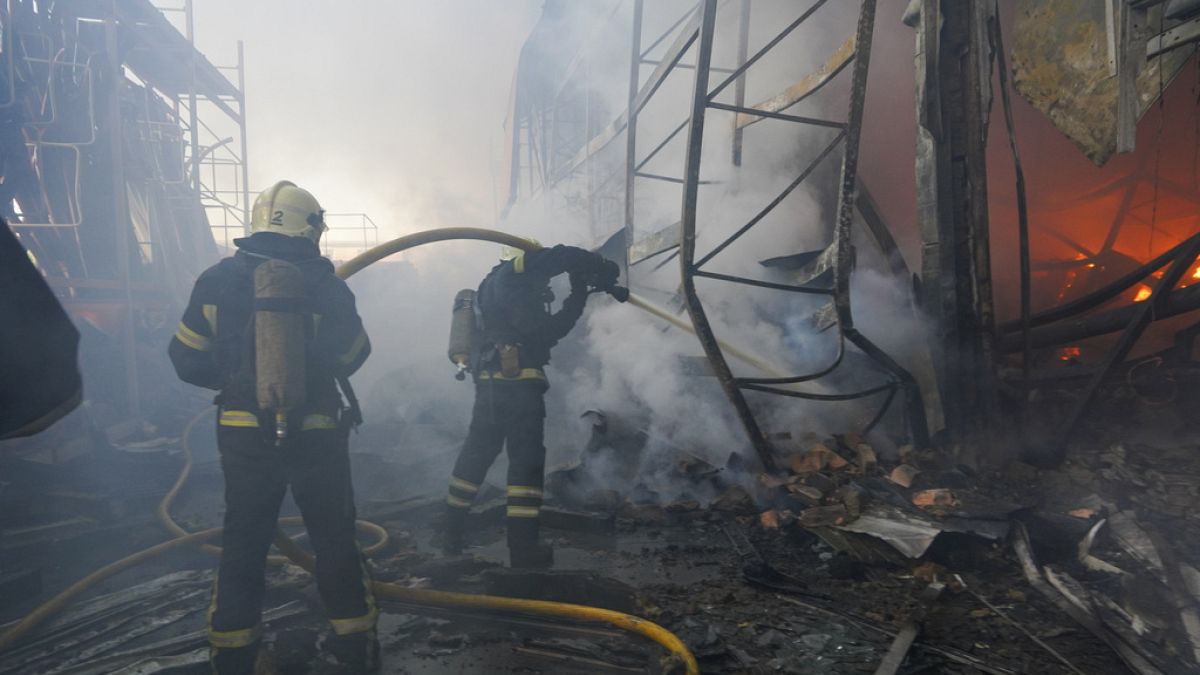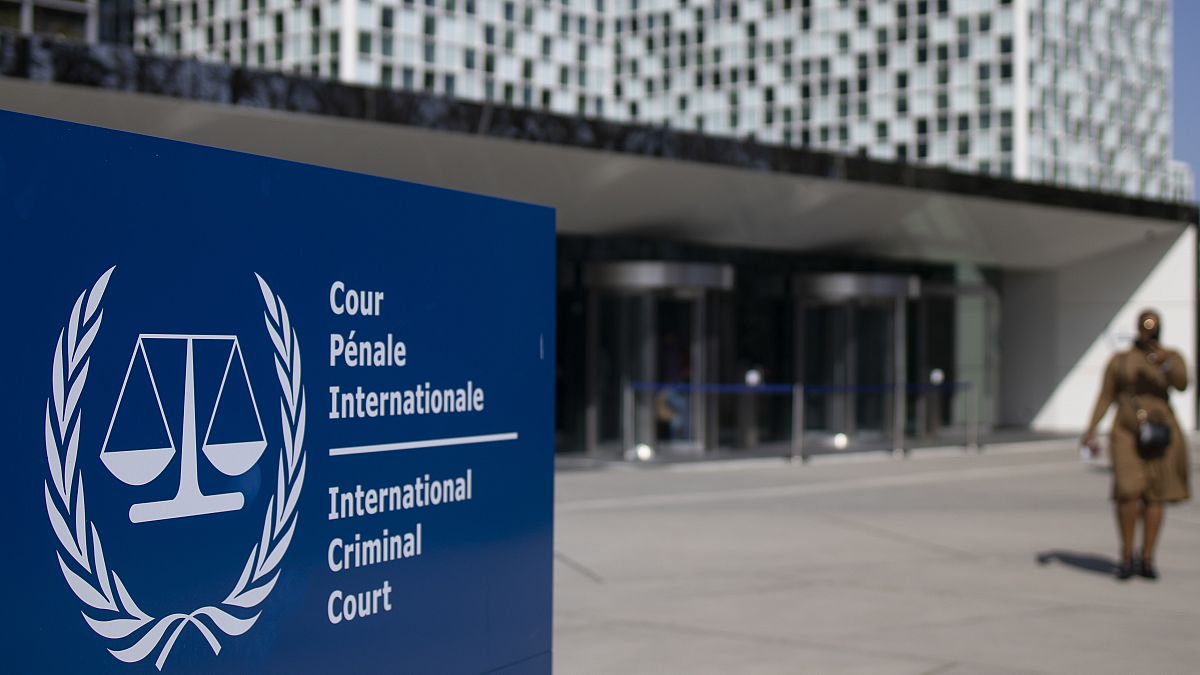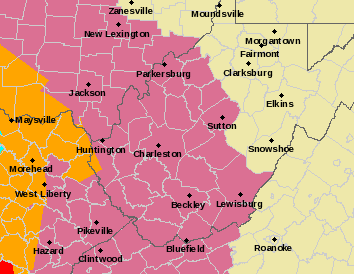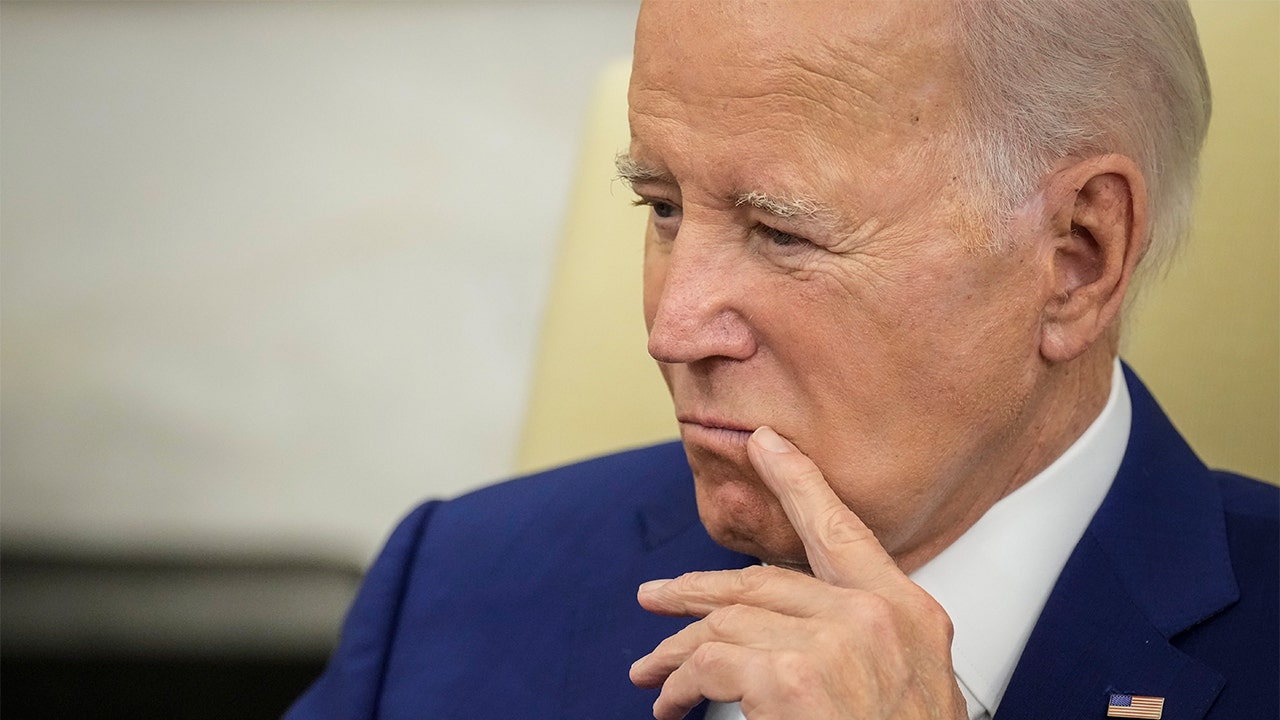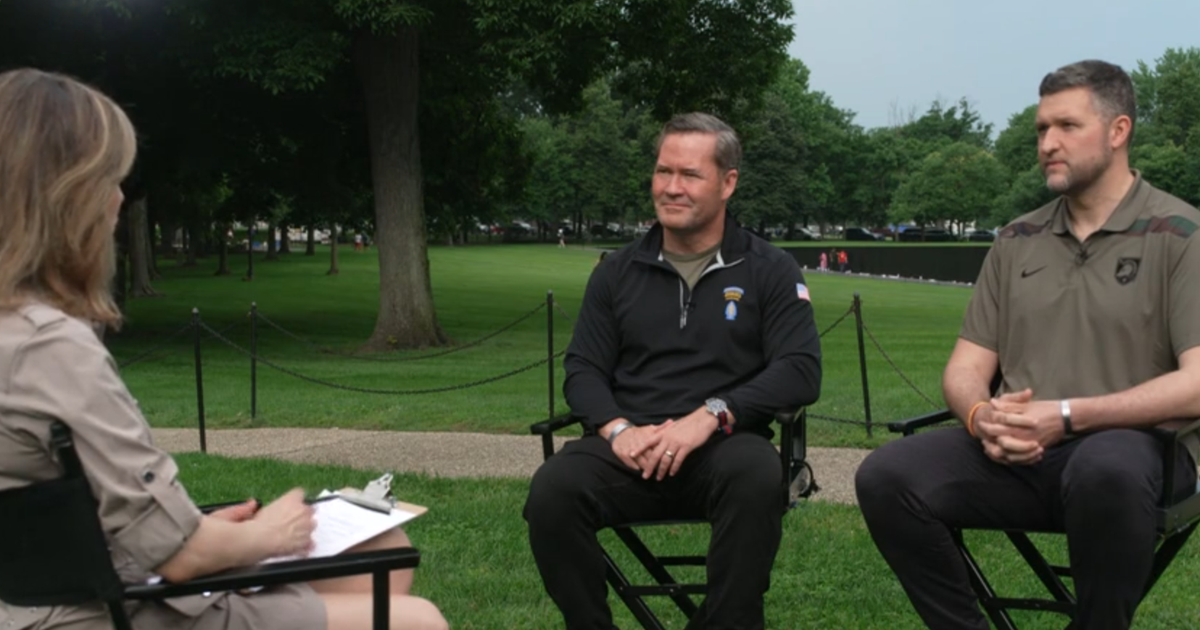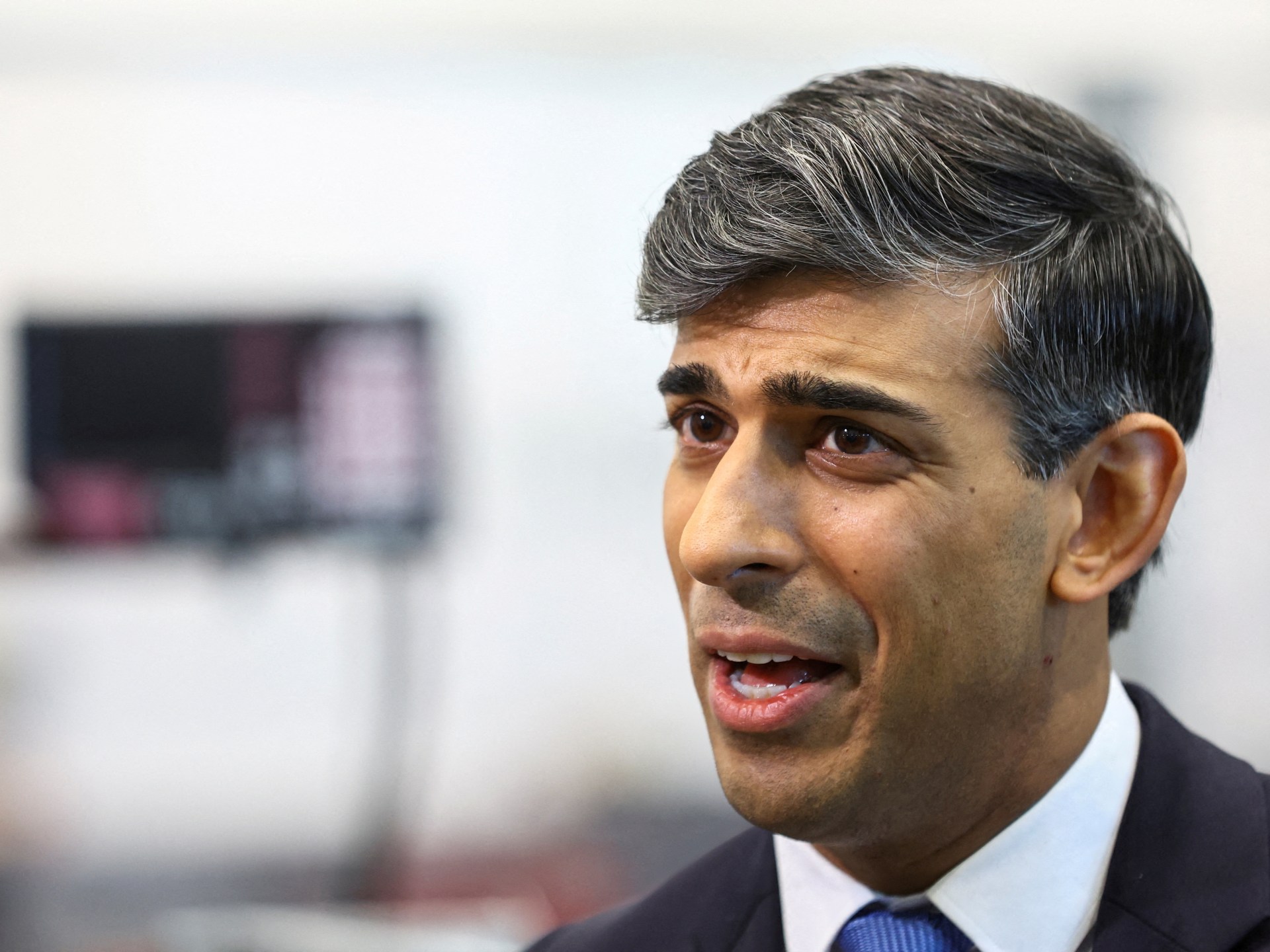World
Situation 'dire' for Ukraine despite delayed US aid package
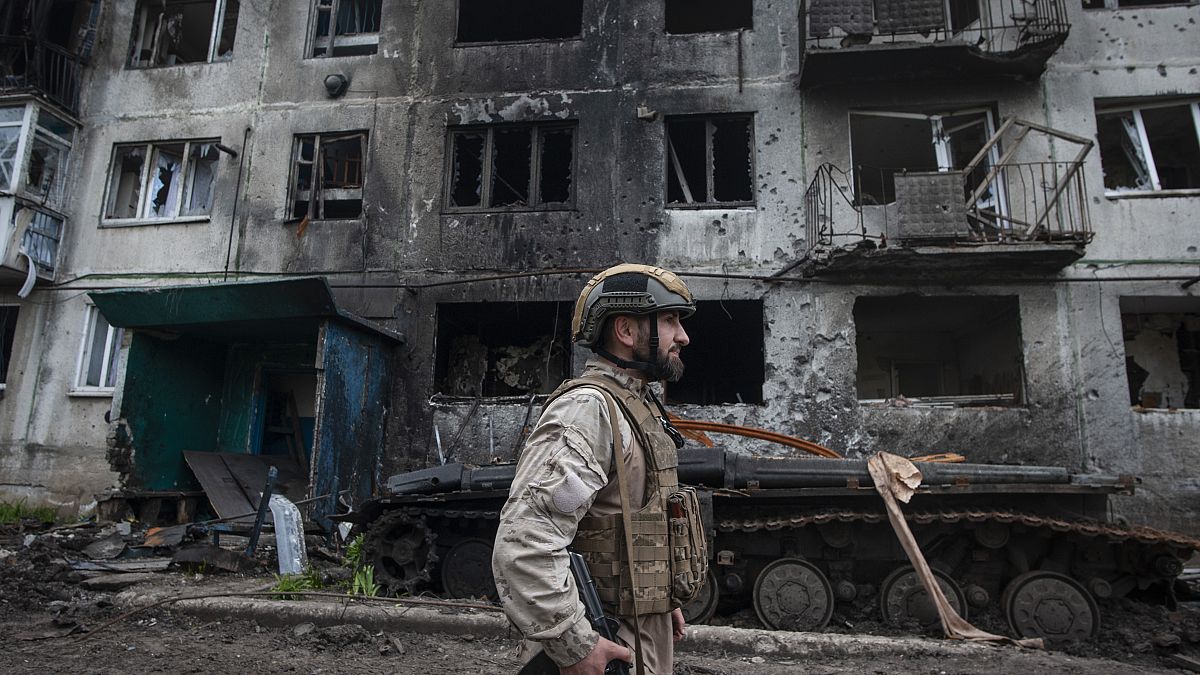
Ukraine has been rationing ammunition and bullets; meanwhile the Russian army has been using ‘human wave’ tactics by sending poorly trained recruits to the frontline in a bid to force Ukraine use up all of its ammunition.
In Ukraine, the army has been on the backfoot over the last few months; and despite the US package of $61 billion (€56.6 billion) of military support, experts say it will be sufficient merely to hold the frontline and possibly regain some lost territory.
The situation has deteriorated in large part due to a serious shortage of ammunition and weapons from Western allies; where Ukrainian forces say they have been rationing bullets.
Ukraine has been forced to abandon territory westward beginning with Avdiivka in Donetsk region in February.
Due to a distinct lack of military support, Russia has gained and maintained momentum.
In recent days Ukraine forces have been outnumbered in three villages in the East – Berdychi, Semenivka, and Novomykhailivka in Donetsk Oblast.
“The situation at the front has worsened,” Ukrainian army chief Oleksandr Syrskyi said in a post on Telegram. “In general, the enemy has succeeded tactically in these directions but has failed to achieve an operational advantage”.
“It really is quite dire for the Ukrainians now,” said Ed Arnold, senior fellow at the Royal United Services Institute (RUSI).
“The real challenge for the Ukrainians is they haven’t fully set defensive lines, as we saw the Russians do that last winter,” Arnold added.
He believes that Ukraine might not have an opportunity to go on the offensive until 2025 or even 2026.
‘The situation is like World War II’
In some battles, Russia also deployed its ‘human wave’ tactic which involves ordering a mass number of poorly trained soldiers – often recruited from prisons – into battlefields to encourage Ukrainians to use up a lot of ammunition, before then unleashing more senior troops with advanced weapons and training.
It was a tactic deployed by the now-deposed Wagner group but has been adopted to great effect in Ukraine by the Russian army.
Oleksandr Matiash, a Ukrainian officer, has been on the frontline since the full-scale invasion began. He has seen combat in Bucha and the East, and his battalion has also fought in Avdiivka.
“We will win this war, but the losses will be critical for Ukraine. We don’t have enough people. At the start of the war, we had 38 million – too many people left. Some of them don’t want to fight, some of them can’t fight. And if we lose too many people, we just can’t defend our country, so we need help,” he says.
“The situation is like World War II when there was an invasion by Germany in Poland – I see the same situation – if we wouldn’t stop Russia on the Ukrainian border, war will go into Europe – that’s my prognosis”.
Last week in Kyiv, NATO Secretary General Jens Stoltenberg acknowledged to Ukrainian President Zelenskyy, “Ukraine has been outgunned for months… fewer Russian missiles and drones have been shot down, and Russia has been able to push forward on the front line”.
Watch the full report in the video player above.
Journalist • Shona Murray

World
Macron heads to Germany in first French presidential state visit in 24 years

World
Hamas launches rocket barrage into Israel from Rafah, sounding alarms in Tel Aviv
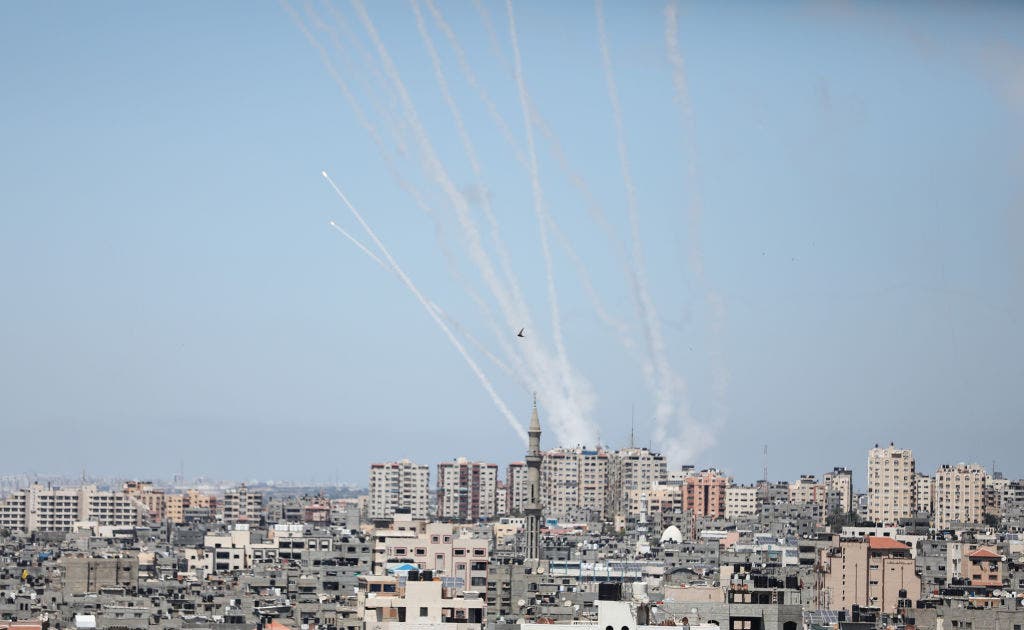
Hamas terrorists launched a barrage of rockets into Israel on Sunday, with roughly a dozen of them being fired from the hotly contested city of Rafah.
Israel’s Iron Dome successfully intercepted the majority of the rockets, with alarms sounding in Tel Aviv and other major cities. The strike comes as Israeli forces are increasing operations in and around Rafah, what Israel says is the final major stronghold for Hamas in Gaza.
Hamas took responsibility for the barrage and argued it was retaliation for “Zionist massacres against civilians.”
Israel has faced growing international pressure to cease its operations in Rafah, which plays host to roughly 1.5 million displaced Gazans. Israel encouraged civilians in the region to leave areas where they conducted military operations against Hamas in an effort to minimize civilian casualties.
GROWING CONTROVERSY OVER BIDEN’S GAZA PIER FUELS CONCERNS OVER COST, SECURITY
Hamas terrorists launched a barrage of rockets into Israel on Thursday, with roughly a dozen of them being fired from the hotly contested city of Rafah. (Getty Images)
Rafah lies on the border with Egypt and had served as a major artery for humanitarian aid. Israel took control of the Gazan side of the border this week, however, and Egypt responded by refusing to allow further aid through.
US MILITARY CONSTRUCTS HULKING METAL PIER AMID BIDEN’S $320 MILLION GAMBLE TO GET AID INTO GAZA
Egypt refuses to reopen its side of the Rafah crossing until control of the Gaza side is handed back to Palestinians. It agreed to temporarily divert traffic through Israel’s Kerem Shalom crossing, Gaza’s main cargo terminal, after a call between President Biden and Egyptian President Abdel-Fattah el-Sissi.
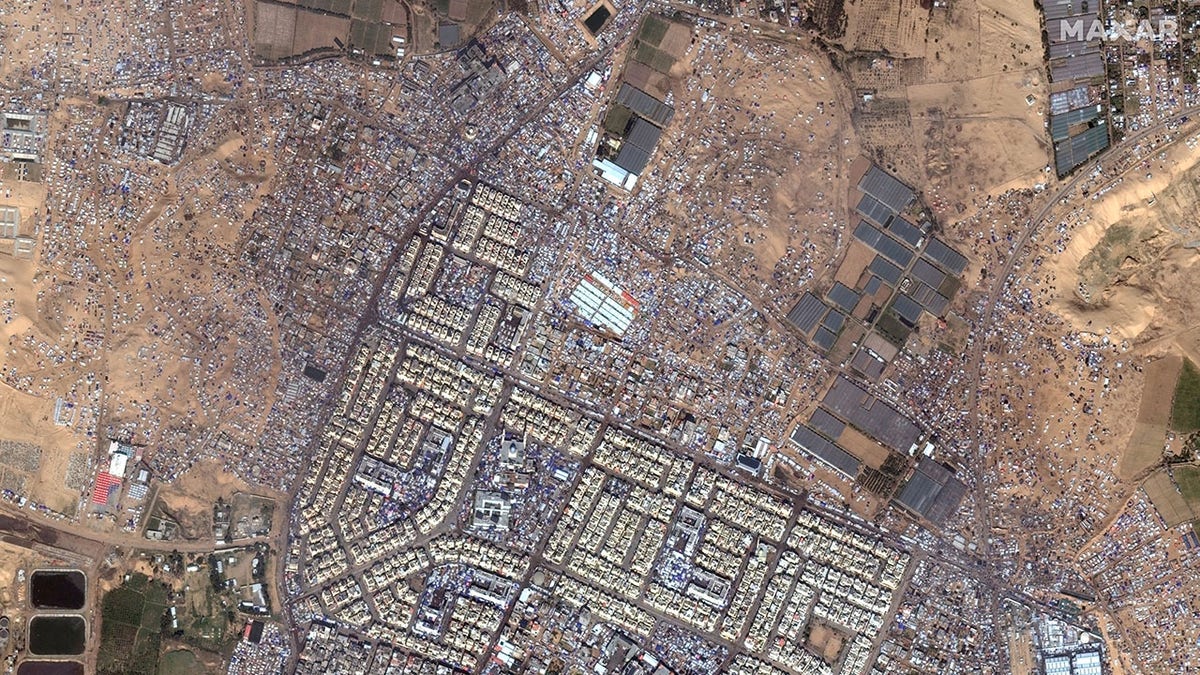
Rafah, pictured here, lies on the border with Egypt and had served as a major artery for humanitarian aid. Israel took control of the Gazan side of the border this week, however, and Egypt responded by refusing to allow further aid through. (Reuters/Maxar Technologies)
Hundreds of aid trucks traveled through Israel’s Kerem Shalom crossing this weekend, but United Nations workers say they have had difficulty accessing the aid due to heavy fighting nearby.
The new aid agreement comes as a “floating pier” created on the Gaza coast by the U.S. suffered damage this weekend. The pier remains mostly operational, but four vessels that had served to stabilize the pier were detached due to rough weather.
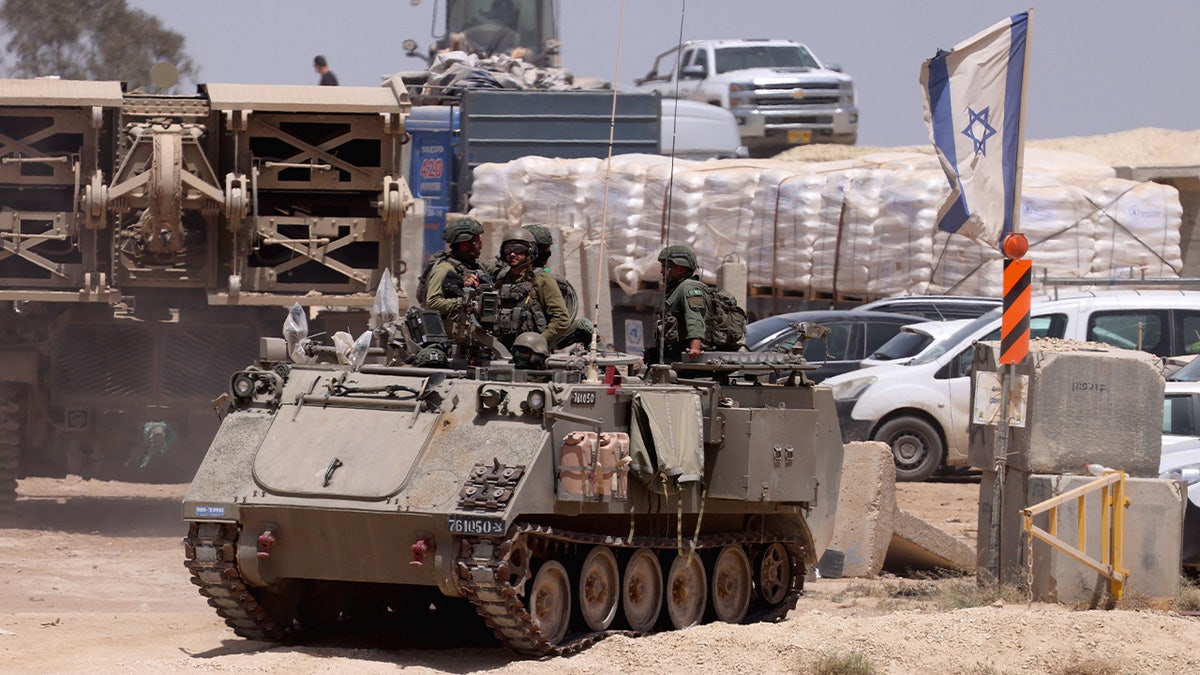
Israeli military vehicles along the border with Gaza on April 24, 2024. (Jack Guez/AFP via Getty Images)
The U.S. spent roughly $320 million constructing the pier, which has been a conduit for aid from the U.S. and other countries. While the pier has been used to transfer roughly 569 metric tons of aid into Gaza, as of last week none of that aid had been delivered to Palestinians, the Pentagon confirmed.
The Associated Press contributed to this report
World
Macron pays Germany a state visit for the first time in 24 years
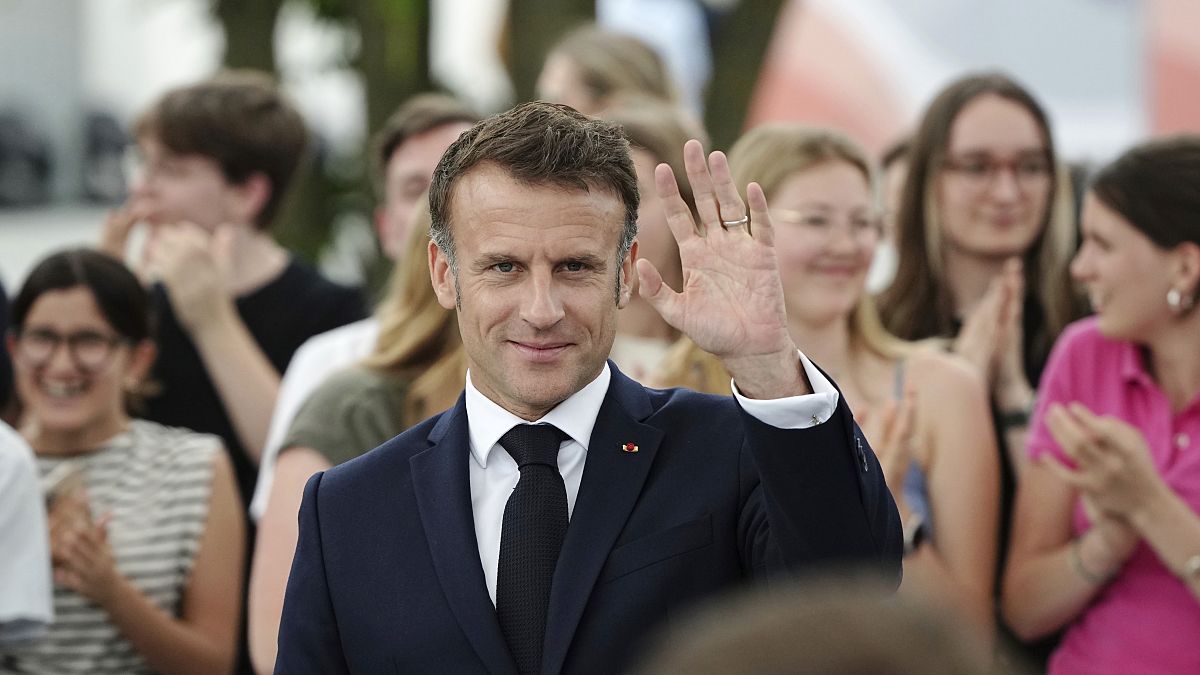
Germany and France, the EU’s largest economies, have long been seen as the driving force of European integration, despite occasional policy differences.
For the first time in 24 years, a French president has paid a state visit to Germany.
President Emmanuel Macron arrived on Sunday for a three-day trip, intended to emphasise the strong ties between the European Union’s leading powers.
Initially set for last July, the visit was postponed due to riots in France following the police killing of a 17-year-old.
While Macron is used to visiting Germany to coordinate EU and foreign policy, this is the first state visit with full ceremonial honours since Jacques Chirac’s visit in 2000.
Macron and his wife, Brigitte, were hosted by Germany’s president, Frank-Walter Steinmeier, as Germany celebrates the 75th anniversary of its post-World War II constitution.
Steinmeier put on a state banquet for Macron at Bellevue Palace in Berlin Sunday evening.
On Monday, the two presidents will travel to Dresden, where Macron will deliver a speech.
They will visit then Muenster in western Germany on Tuesday.
The state visit will conclude with a meeting between Macron, German Chancellor Olaf Scholz, and ministers from both countries at a government guest house outside Berlin.
Germany and France, the EU’s largest economies, have long been seen as the driving force of European integration, despite occasional policy differences.
This was evident earlier this year when the two countries had differing positions on whether Western countries should rule out sending troops to Ukraine.
Macron did not rule out putting boots on the ground in Ukraine, though Scholz quickly distanced himself from these remarks.
Nonetheless, both nations remain strong supporters of Kyiv.
-

 Movie Reviews1 week ago
Movie Reviews1 week agoIs Coppola’s $120M ‘Megalopolis’ ‘bafflingly shallow’ or ‘remarkably sincere’? Critics can’t tell
-

 World1 week ago
World1 week agoTaiwan grapples with divisive history as new president prepares for power
-

 Crypto1 week ago
Crypto1 week agoVoice of Web3 by Coingape : Showcasing India’s Cryptocurrency Potential
-

 Politics1 week ago
Politics1 week agoTrump predicts 'jacked up' Biden at upcoming debates, blasts Bidenomics in battleground speech
-

 News1 week ago
News1 week agoA bloody nose, a last hurrah for friends, and more prom memories you shared with us
-

 News1 week ago
News1 week agoVideo: A Student Protester Facing Disciplinary Action Has ‘No Regrets’
-
/cdn.vox-cdn.com/uploads/chorus_asset/file/24038601/acastro_STK109_microsoft_02.jpg)
/cdn.vox-cdn.com/uploads/chorus_asset/file/24038601/acastro_STK109_microsoft_02.jpg) Technology1 week ago
Technology1 week agoMicrosoft’s Surface AI event: news, rumors, and lots of Qualcomm laptops
-

 World6 days ago
World6 days agoPanic in Bishkek: Why were Pakistani students attacked in Kyrgyzstan?
